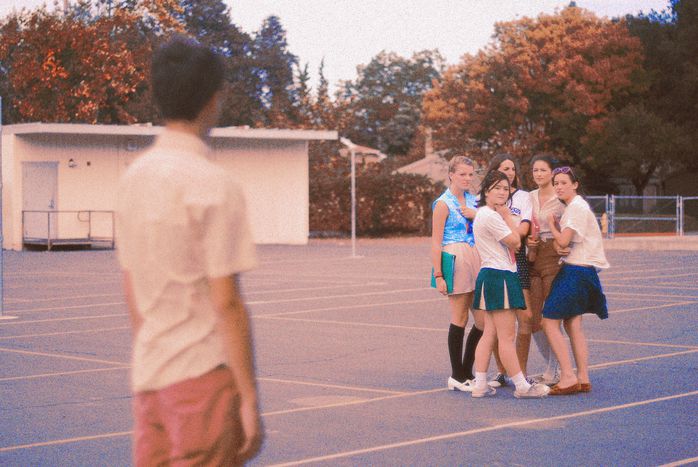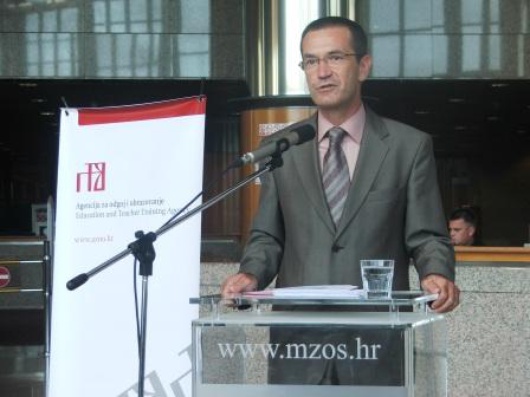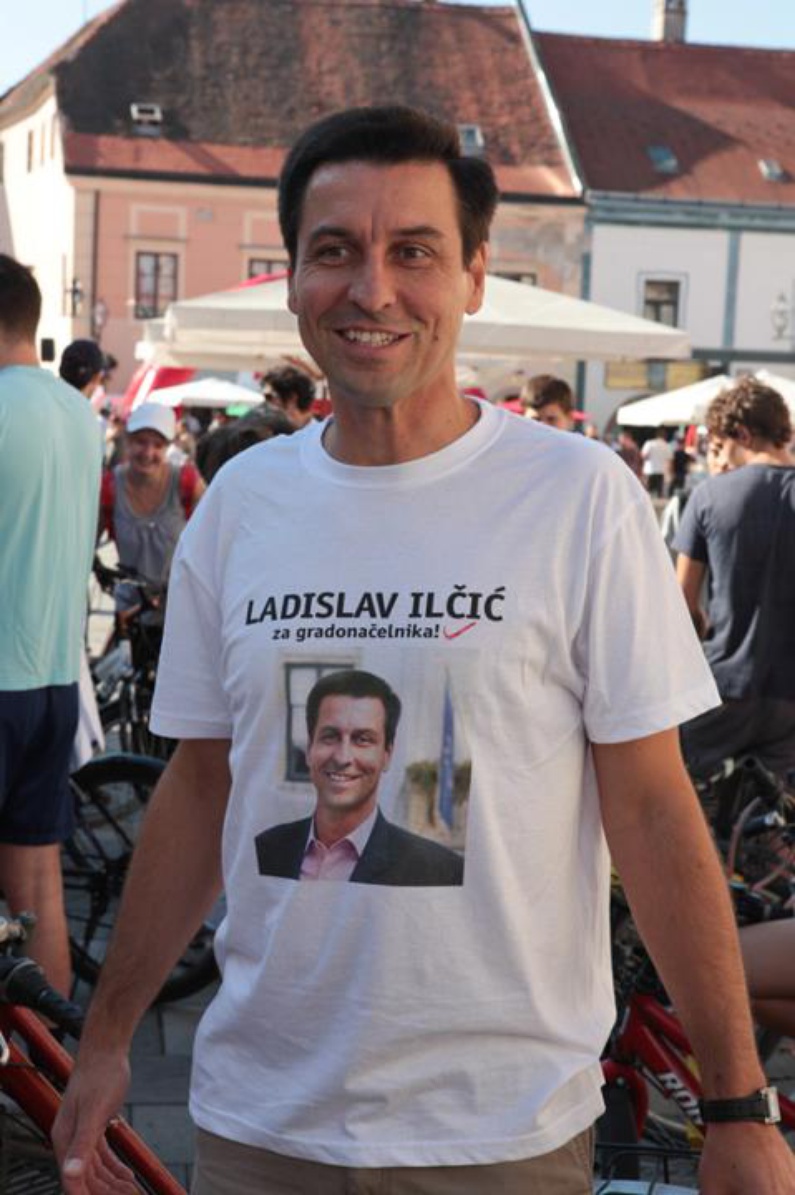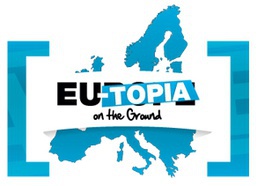
Prudes Halt sex education in Croatia
Published on
Translation by:
Joel LewinIn May 2013, the constitutional court of Croatia removed sex education from the national curriculum. The catholic church, conservative political parties and parents’ associations have all weighed in. They accuse the curriculum of promoting homosexuality, pornography and paedophilia
Despite it being peak season, the streets of Zagreb empty quickly in the evening. After midnight, the only gatherings take place around a local squat where a group of adolescents sit on mattresses beside an abandoned building. The boys are 15 years old at most. The girls look older. I ask them about school, and the quality of sex education classes in particular. ‘There weren’t any,’ they say. ‘The teacher was afraid of getting grilled and not knowing what she was allowed to say. Instead she would give us an hour off!’
Sex over economics
The director of the government department entrusted with implementing the programme in Croatian schools, Vinko Filipovic is waiting for me in one of the education department’s conference rooms in the Croatian capital, where he has just concluded a meeting. He asks me why I want to interview him. He seems disappointed when I tell him I’m interested in the dispute surrounding the sex education curriculum. It’s certainly not the first time a western journalist has asked him, ‘What’s it really about? Why does a curriculum which is typical in other countries spark such controversy in Croatia? Why did it inspire a public outcry that saw it withdrawn from the constitutional court?’ After a brief pause, he asks me to explain why this issue has sparked so much interest. He then makes it clear that Europe would do better to deal with their own problems instead of being nosey and interfering with Croatia’s.
I explain that Croatia is not respecting its commitments as a signatory of the convention on the rights of the child and other human rights treaties. Since May 2013, young people have in effect been deprived of advice concerning sexuality by the decision of the constitutional court. As such, I ask him if the decision contradicts the Croatian constitution.
 Vinko Filipovic shakes his head in denial. ‘The withdrawal of the programme resulted from procedural errors which arose at the time of its introduction (the public debate which took place in May 2013 was organised by the department for education, and not by the minister, as demanded by regulation- ed). The constitutional court did not express any reservations about the content of the curriculum. However, certain pressure groups misinterpreted the main points of the curriculum, criticising it for promoting homosexuality, paedophilia and pornography.’ As such, contrary to the claims of the media, the withdrawal of the curriculum has no statutory basis.
Vinko Filipovic shakes his head in denial. ‘The withdrawal of the programme resulted from procedural errors which arose at the time of its introduction (the public debate which took place in May 2013 was organised by the department for education, and not by the minister, as demanded by regulation- ed). The constitutional court did not express any reservations about the content of the curriculum. However, certain pressure groups misinterpreted the main points of the curriculum, criticising it for promoting homosexuality, paedophilia and pornography.’ As such, contrary to the claims of the media, the withdrawal of the curriculum has no statutory basis.
Bad politics, bad health
At the moment, Croatia is suffering from the economic crisis more than other countries. ‘People need to find a way to channel their discontent and frustration,’ says Vinko. ‘That’s why they are turning more readily towards populist groups.' This leads to the polarisation of public opinion. When nobody is capable of dealing with the economic problems, people turn to the discussion of moral issues. This is how the boundary between democratic participation in civic society and populism becomes blurred. The sex education curriculum even trumped the budget and the economic crisis as the number one topic in the Croatian media. Filipovic claims that every time the government tries to communicate a message to the people, the press shift the emphasis to sex, the church and politics.
 The health curriculum, which included the infamous module on sex education, was revised before being introduced into schools in September 2012. This revision was a reaction to the disastrous results of surveys carried out by the minister of education. These surveys showed that Croatia had the fourth highest rate of adolescent obesity in the world. Moreover, young Croatians start smoking between the ages of seven and fifteen, and start drinking during the last years of school, at the age of thirteen or fourteen. There are 2, 000 unwanted pregnancies amongst adolescents aged 15-19 of which 400 result in abortions. ‘Despite these facts, the curriculum continues to encounter fierce criticism. It’s absurd,’ rages Vinko Filipovic. Significantly, the archbishop of Zagreb described the curriculum as ‘destructive and dangerous’.
The health curriculum, which included the infamous module on sex education, was revised before being introduced into schools in September 2012. This revision was a reaction to the disastrous results of surveys carried out by the minister of education. These surveys showed that Croatia had the fourth highest rate of adolescent obesity in the world. Moreover, young Croatians start smoking between the ages of seven and fifteen, and start drinking during the last years of school, at the age of thirteen or fourteen. There are 2, 000 unwanted pregnancies amongst adolescents aged 15-19 of which 400 result in abortions. ‘Despite these facts, the curriculum continues to encounter fierce criticism. It’s absurd,’ rages Vinko Filipovic. Significantly, the archbishop of Zagreb described the curriculum as ‘destructive and dangerous’.
Ladislav Ilćić is a representative of the organisation GROZD, which opposed the booklet in the constitutional court. So why did the church react so radically? ‘I have my suspicions,’ he replies coyly. ‘The content of the curriculum was horrible. Amongst other things, it promoted paedophilia, perhaps not directly, but you can find that kind of thing in the bibliography. Moreover, the booklet favoured moral relativism.’ The organisation proposed its own curriculum based on christian values. Although seemed like a mere utopian dream, GROZD accomplished the impossible. During two weeks in May 2013, working with the In the Name of the Family organisation, GROZD managed to gather more than 700, 000 signatures calling for a referendum on the insertion of a definition of marriage into the constitution. This clause would define marriage as a union between a man and a woman. ‘We gathered signatures outside churches. The government was furious when we had a sizeable list! I wouldn’t discount the possibility of a constitutional crisis in the autumn,’ prophesises Ilcic. He hopes that Croatia’s recent membership of the European union in July 2013 will strengthen democracy in the country. In the meantime, important decisions should be left to the appropriate departments.
Back at the squat, I ask the youngsters if it’s normal that the squat is closed. They’re heading off to another squat and suggest I join them. They want to know what kind of evening I’d appreciate - drugs, dancing, alcohol…? My young companions tell me that they have learnt several foreign languages and ask whether it is easy to find a job in the media or in the EU. ‘We plan to leave this ‘shitty’ country,’ they add.
This article is part of a series of special  monthly city editions on ‘EUtopia on the ground’; watch this space for upcoming reports ‘dreaming of a better Europe’ from Naples, Dublin, Zagreb and Helsinki. This project is funded with support from theEuropean commission via the French ministry of foreign affairs, the Hippocrène foundation and the Charles Léopold Mayer foundation for the progress of humankind
monthly city editions on ‘EUtopia on the ground’; watch this space for upcoming reports ‘dreaming of a better Europe’ from Naples, Dublin, Zagreb and Helsinki. This project is funded with support from theEuropean commission via the French ministry of foreign affairs, the Hippocrène foundation and the Charles Léopold Mayer foundation for the progress of humankind
Translated from Wychowanie seksualne w zagrzebiu



